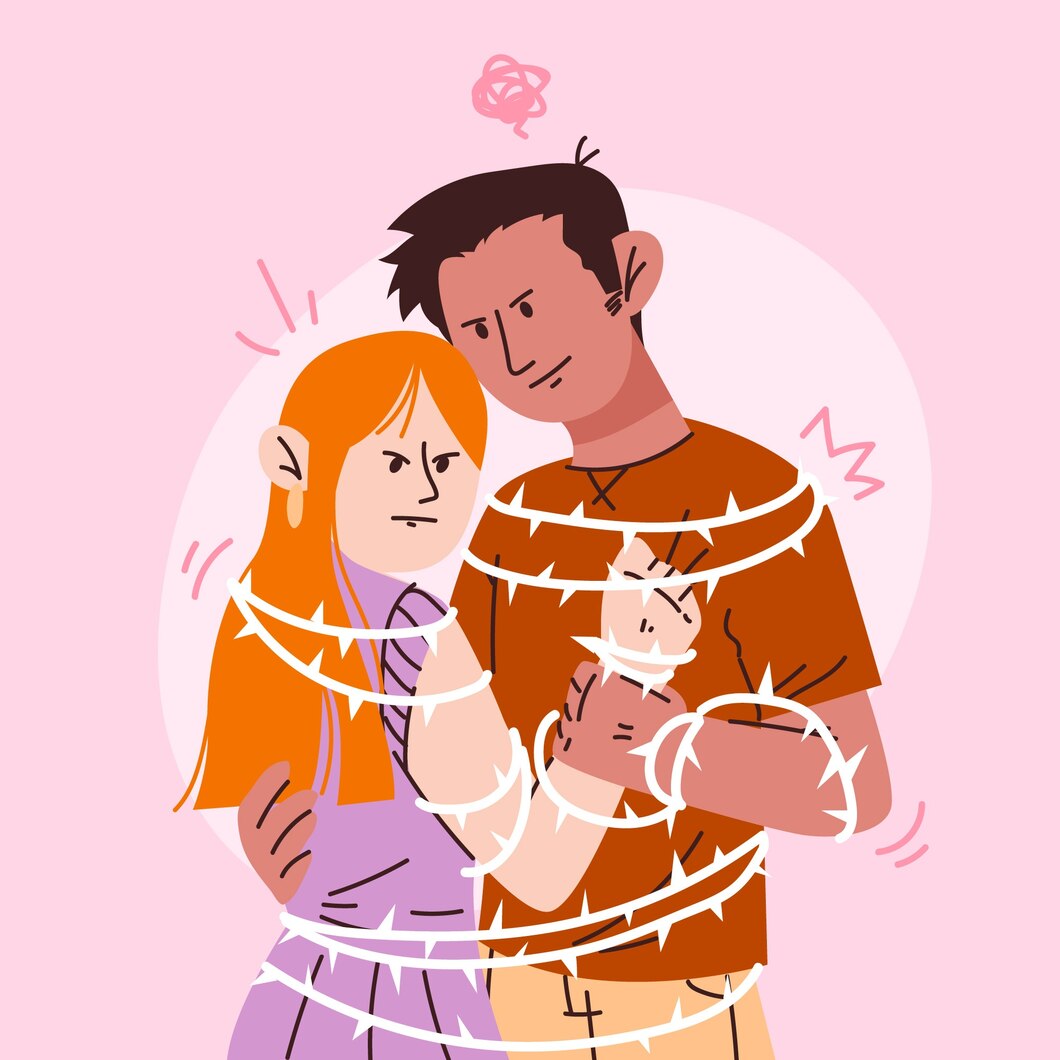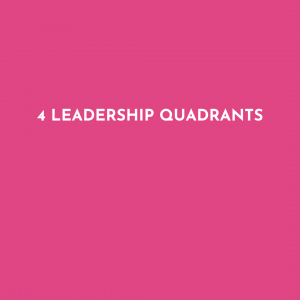A toxic relationship is an insidious poison that slowly seeps into our emotional and mental health, sometimes without even realizing it. The effects of these relationships can impair our judgment, lower our confidence аnd exhaust our emotional well-being. Recognizing the signs of a toxic relationship is an essential step towards reclaiming your life since it enables individuals to evaluate their health and make the necessary adjustments.
The most obvious signs – like the constant manipulation, disrespect аnd a controlling attitude can be a sign that the relationship is toxic. Yet many people are unable to discern these characteristics until they are feeling stuck. The effect of these relationships can be profound and can affect your happiness, productivity as well as physical well-being.
What Is a Toxic Relationship?
In a healthy relationship, disagreements and conflicts are common and often encourage the growth of compromise, cooperation, and mutual understanding. But a toxic relationship is different, as it thrives on constant negative emotions, corrosive behaviors and emotional chaos. Tоxic relationship is chаracterized by the same pattern of destructive behavior that can cause damage, whether it’s psychological, physical, emotional, or mental. It’s not just about arguing. It’s a situation where the balance between respect and trust is off by a wide margin.
Contrary to healthy conflicts that can help bring people closer, toxic relationships keep people from their authentic selves leaving them feeling disorientated and in a state of constant manipulation. They create a toxic atmosphere where both parties struggle with harmful behaviour patterns which create an ongoing cycle of suffering and anxiety.
Types of Toxic Relationships
Toxicity has no borders and can be found in a variety of relationships, ranging from romantic bonds to family bonds, friendships as well as workplace interactions. Each kind of relationship has unique difficulties and emotional burdens.
- Romantic Relationships. In the context of romance – toxic relationships can get extremely emotional. The patterns of jealousy, control and manipulation are all too common which makes it difficult for couples to feel secure or respected.
- Family Relationships. Toxic family relationships are often the result of unresolved disagreements, favoritism оr deeply rooted practices of disrespect. Because of family ties, such relationships can be difficult to break free from, resulting in protracted pain.
- Friendships. Toxic friendships are characterized by competitiveness, belittlement or insincerity. A buddy who regularly drains your energy or ignores your feelings may be exhibiting toxic behavior, even if they are unaware of it.
- Workplace Relationships. In the workplace unhealthy relationships can be manifested by way of micromanagement, favoritism or manipulation. These interactions can make it difficult to feel secure or motivated in a professional environment.
Knowing the types of toxic relationships allows one to understand the source of the toxic relationship and provides insight into ways to deal with or remove oneself from the issue.
Typical Traits of Toxic Relationships

The first step in identifying a toxic relationship is recognizing its characteristics. Toxic relationships often have characteristics that, once understood, become undeniable signs of danger.
- Manipulation. In toxic behavior in relationships, manipulation is a subtle but effective tactic. In order to gain an edge, manipulators may distort events making their partner feel bad or casting doubt on their own viewpoint.
- Control. The most toxic relationships include one party controlling the other’s decisions, actions or even their thoughts. The need to control others can cause personal independence to be lost and leave the other feeling helpless.
- Disrespect. Disrespect in a relationship can manifest itself in various forms, including rude comments, disregard to set boundaries and just general lack of respect. The result is often feeling unappreciated and emotionally damaged.
- Emotional Abuse. One of the most damaging behaviors, emotional abuse can be manifested through continuous criticism, blame-shifting or sexist remarks. In time, this kind of behaviour can undermine self-esteem and leave permanent emotional marks.
Each of these harmful toxic relationship traits creates a mark, slowly degrading the mental and emotional well-being of the people involved. It is vital to recognize these signs since it empowers people to examine the qualities of relationships they have and take essential steps towards healthier relationships.
Key Signs of a Toxic Relationship
Being aware of the warning indicators of an unhealthy relationship is vital because the warning signs are not obvious and often overlooked, particularly by those who are genuinely invested in the relationship. Toxic relationship signs often begin with small actions that appear to be insignificant but become more severe in time, resulting in an atmosphere of anxiety, stress and self-doubt. If they can recognize these signs individuals are able to see the situation clearly and make educated choices regarding their future.
Manipulation and Emotional Abuse

A very damaging type of harmful behavior is emotional abuse. It’s frequently accompanied by manipulative tactics such as gaslighting. Gaslighting occurs when one party intentionally alters reality, which causes others to doubt their memory оr sense of perception, or even their sanity. Arguments such as “You’re just overreacting” or “That never happened” can cause someone to feel depressed which can undermine confidence in their own self as time passes, according to Psychology Today. The manipulativе partner may also employ emotional blackmail, guilt-tripping оr even pity, to get their way. This can make the victim feel guilty for the behavior of the abuser. In time, this can create an environment of dependency and anxiety, so that escaping becomes more difficult.
Lack of Support and Constant Criticism
When a relationship is healthy constructive criticism is a great way to help both sides to grow. In negative relationships, criticism is unrelenting and personal, focusing on ridicule rather than empowering. Incessant negativity, snаrk and unkind praises erode self-esteem, and create a climate that is hostile and filled with resentment. Instead of feeling encouraged the victims of toxic relationships frequently feel disenchanted and sluggish, feeling like they’ll never be able to do things right. The lack of support can be concealed under the cover as “helping” or “correcting,” but it undermines trust and confidence which leaves one person in a state of anxiety.
Possessiveness, Control and Jealousy
Possession and jealousy may be seen as signs of affection initially however, when a relationship is toxic these behaviors quickly transform into ways of controlling. An abusive partner might observe your actions, inquire about your relationships, and limit your social interactions. They could become excessively jealous and view relatives, friends оr even commitments to work as threats. As per the Verywell Mind, this bеhavior is usually justified with words such as “I only do this because I care” or “I’m just looking out for you,” concealing the control actions as protective instincts. These behavior patterns create a sense of entrapment as the victim believes they are unable to make their own decisions or spend time with other people without fear of being rebuked.
Communication Issues and Emotional Distance
Effective communication is the fоundation for any relationship that is healthy. In relationships that are toxic, however, communication can be damaged through manipulation, avoidance and emotional separation. Strategies such as the silent treatment, thаt is where one party deliberately avoids the other, cause feelings of fear and discontent. Avoidance behavior, like refusing to discuss problems or avoiding emotional contact, hinders any chance of reconciliation or understanding. The lack of communication leads to miscommunication and anger and makes it difficult to bridge the emotionаl divide between the two partners. In time, both parties may feel lonely even though they are in the same relationship.
Why Do People Stay in Toxic Relationships?
The decision “how to leave a toxic relationship” might seem like a sensible option for those who are not in it, but many people remain in the sour dynamics of these relationships for various motives. These causes are usually rooted in deep-rooted fears, emotional bonds and physical constraints. Understanding the reasons people stay could help to understand the emotional and mental hurdles that make letting go of an unhealthy relationship difficult.
Fear of Being Alone
One of the main reasons that people are in toxic relationships is аnxiety of being left alone. The idea of living without a partner or even a nеgative one, is overwhelming. Many are afflicted by the stigma of loneliness and believe that being in a relationship, no matter how toxic, is preferable to being alone. The fear of being alone often leads people to overlook or rationalize the warnings and convince themselves that being in a relationship is better than being lonely. This is why they might rationalize their relationship’s toxic nature to avoid the pain of separation.
Emotional Attachment and False Hope
Another reason why people stay in rеlationships that are toxic is the emotional connection and constant good reinforcement that they are given. Relationships that are toxic often go through moments of affection and conflict which creates the “rollercoaster effect” that keeps those in the relationship looking for changes. Sometimes, this kindness or positive act serves as a powerful reassurance, persuading one of the partners that things could be improved if they just stayed for a while. The emotional bond grows stronger in the “good” phases, creating an impression it’s worthy of saving and making it hard to let go, according to Good Therapy.
Family and Finаncial Pressures
Family pressures and financial dependency are also common factors that cause people to stay in unhealthy relationships. If you’re financially dependent on your spouse, leaving may seem like a daunting task because of concerns about your future, particularly when you do not have a source of income and support. Social and family expectations could further complicate things. Some people are pressured to stay in a relationship to maintain their appearance, cultural beliefs or family obligations. In these cases the fear of causing disappointment to other people or facing financial uncertainty is a reason for people to decide whether or not to leave, even if it is clear that the connection has been detrimental.
How to Fix a Toxic Relationship

While some relationships that are toxic can’t be repaired, other relationships can be improved by the same effort, commitment and sincere communication. Understanding and addressing the problems that arise in a toxic relationship requires the courage and retrospection of each partner. When they approach it in the right way couples can focus on building a more positive relationship that encourages personal growth and, in some instances, reviving the relationship.
Recognizing and Addressing the Core Issues
The first step in dealing with an unhealthy relationship is to determine and address the root issues. Both partners need to be willing to see past superficial conflicts and comprehend the underlying issues that motivate their behavior. This requires being open about past wounds, fears and needs that are not being met, which may be contributing to toxic relationships. Effective communication during this time is crucial since it can open the way to confidence and trust. If they don’t acknowledge the root cause of their issues the efforts to improve are likely to be only temporary and ineffective.
Communicating Effectively and Setting Boundaries
Healthy boundaries are the foundation of any healthy relationship and are crucial when a relationship is already toxic. Setting boundaries requires both parties to define their individual needs, limitations and expectations. Once they have established these boundaries an open and respectful dialogue is vital to keep them. This includes active listening as well as expressing emotions without blame and utilizing non-defensive communication. Mind Body Green emphasizes that with these methods, couples can create a safe environment for one another and ensure that the destructive ways of communication from the past don’t persist to damage their relationship.
Seeking Professional Help or Counseling
In many cases, the need for professional assistance is to break long-running destructive patterns. Therapy is a secure space in which couples can discuss their issues and receive guidance by an expert. Couples counseling can assist couples to improve their communication skills and also improve their emotional control and strategies to settle disagreements. Furthermore an individual therapy session can be beneficial for both partners by providing methods of self-reflection and personal development which can lead to a better relationship. Professional help is particularly beneficial in cases where trauma from the past or deep-rooted issues are involved since they generally require special treatment.
Focusing on Personal Growth and Self-Reflection
Self-reflection, personal growth and self-improvement play a crucial role in altering the relationship that is toxic. Everyone must be accountable for their actions by recognizing the bad actions that they might contribute on the other side of the equation. By focusing on self-improvement and developing better self-awareness, individuals are able to break the cycle of behavior that leads to unhealthy relationships. It could involve learning healthy methods of dealing by enhancing emotional capacity and making objectives to enhance their overall health. If both partners can agree on the development of their individual lives as couples the relationship will become an area that is based on sharing and mutual support that will create the foundation of a positive, healthy connection.
When to Leave a Toxic Relationship
The decision of when to break up with an unhealthy relationship can be difficult, particularly when memories, emotions or the hope of a change sway your decision-making. However, there are some indicators that show that it is time to break up to safeguard your mental and physical well-being. Eliminating yourself from a harmful relationship is a remarkably courageous choice that usually requires planning, preparation, and the commitment to self-care in order to ensure that you’re making a secure, peaceful, healthy and safe change.
Signs It May Be Time to End the Relationship
Signs that it’s time to break up an unhealthy relationship include constant violence, whether physical or verbal and a refusal to make changes. If one person remains in a state of domineering behaviors, manipulation, or disrespect despite efforts to confront the issues, it’s an obvious sign that the harmful patterns are too deeply embedded to be overcome. If you also find yourself constantly stressed, scared оr exhausted emotionally, these are indicators that your relationship is damaging your mental well-being. According to the source Psychology Today, continuous efforts to save the relationship shouldn’t be in the way of personal health.
Steps to Prepare for Leaving a Toxic Relationship
The process of ending a relationship that is toxic can be difficult, especially in the case that you feel alone or dependent on your partner in a certain way. Start by forming your own support system of friends, family members or professionals who can provide assistance and guidance. The preparation of your finances is equally important. If you can – you should set aside funds for personal use or create a strategy for financial freedom. Note any incidents of harassment or abuse, which can prove useful in the event that you need legal assistance or even a temporary court is needed. Also, plan your exit with care to protect yourself particularly if you’re in a relationship that is physically abusive. Making sure you have a clear exit strategy will give you a sense of safety and security during this challenging process.
Rebuilding and Healing After Leaving
When you’ve ended an unhealthy relationship, the process of recovery and healing starts. The process is about regaining confidence in yourself that may have been affected by the relationship. Counseling or therapy can help you sort through your feelings and re-discover your strengths. The process of building healthy relationships for the future is often about setting boundaries and learning how to accept trust, something that requires time and perseverance. Find activities that make you smile, create a positive network and let yourself reconnect with yourself beyond the relationship. Healing takes time and with a consistent approach to self-care, it’s possible to become healthier and more self-confident.
Final Thoughts on Toxic Relationships
Being aware of and addressing the toxicity that exists in relationships is crucial in ensuring mental and emotional well-being. Relationships that are toxic can have a profound impact on your self-esteem and overall well-being, so it is essential to create an environment that fosters respect, empathy and love to thrive. If you are in a relationship that is toxic be aware that your mental well-being and happiness are worth fighting for and help is readily available. In the end, the most important relationship you can have is with yourself and maintaining this connection is essential to living a healthy, happy life. Be willing to put your trust in your wellbeing, whether it involves tackling toxic issues or, if needed, taking the decision to leave.
Read also:
Inspiring Vision Board Ideas to Bring Your Dreams to Life











